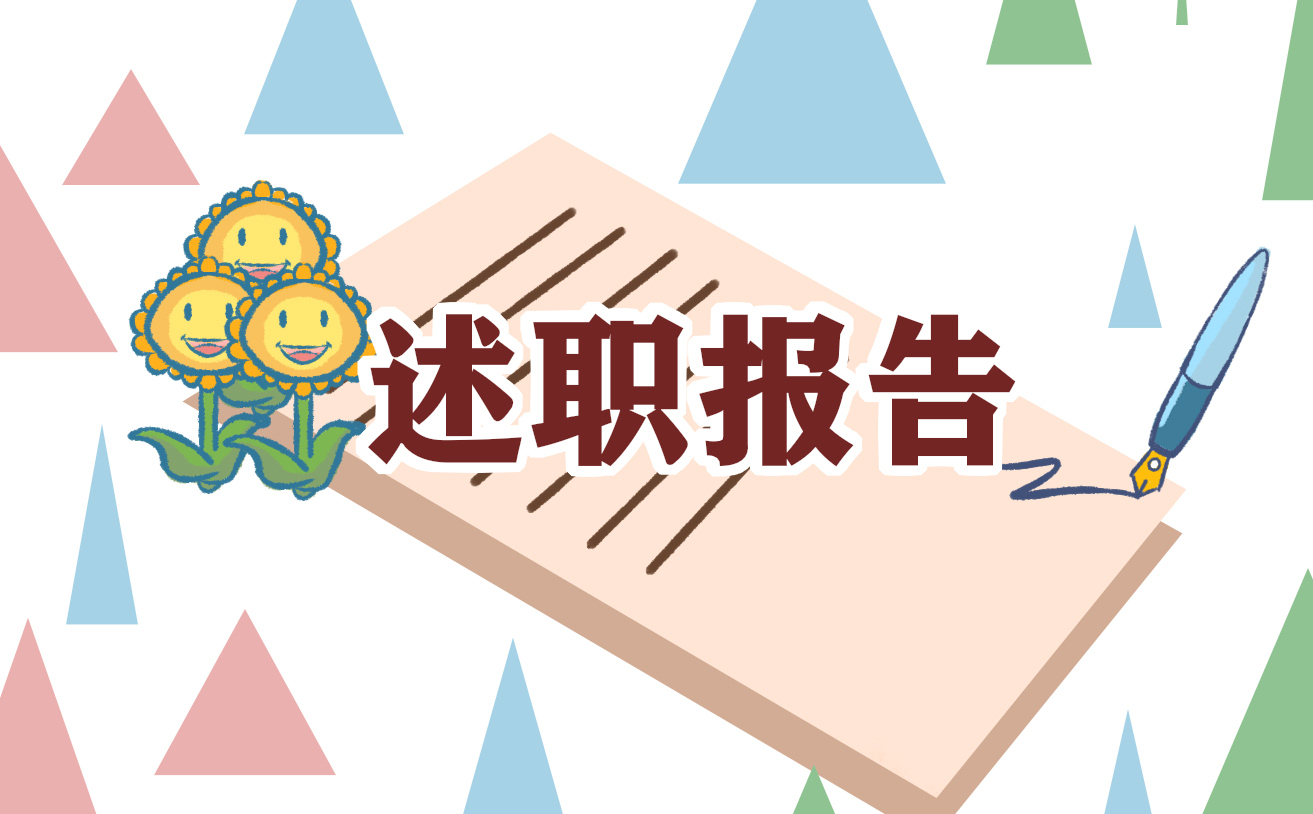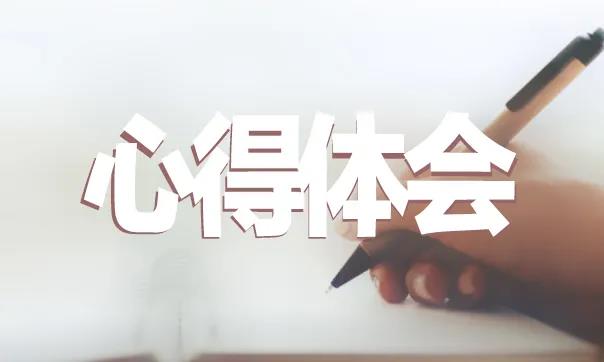下面是小编为大家整理的2023年度英语单词复数形式变形规律总结(范文推荐),供大家参考。

英语单词复数形式变形规律总结1
一、变内部元音
foot-feet
man-men
mouse-mice
tooth-teeth
woman-women
二、词尾加-en
child-children
ox-oxen
三、形式不变,即单复数同型(通形名词)
deer-deer
fish-fish
means-means
series-series
sheep-sheep
四、加-es(是加-s的`特殊情况)
match-matches
tomato-tomatoes
五、去y改i加-es或去f改v加-es(亦为加-s的特殊情况)
leaf-leaves
六、外来词的不规则变形
ovum-ova
locus-loci
basis-bases
(不少外来词有两种复数形式)
focus-foci/focuses
cactus-cacti/cactuses
fungus-fungi/funguses
英语单词复数形式变形规律总结扩展阅读
英语单词复数形式变形规律总结(扩展1)
——性格英语单词总结
性格英语单词总结1
1).character n.性格,特点
The attitude of her mother treating that man was completely out of her character.
她母亲对待那个人的态度不符合她的性格。
2).introverted adj,内向的,不喜欢交往的
Compared to other children, Andrew is introverted
跟其他孩子比起来,安德鲁很内向。
3).extroverted adj.外向的
His mother hopes that he could have an extroverted girlfriend
妈妈希望他能交一个外向的女朋友。
4).animated adj.活跃的,生气勃勃的
Looking at the animated children, the teacher felt gratified
看着那群活泼的孩子,老师感到很欣尉。
5).energetic adj.精力充沛的,积极的
It would be very interesting to be an energetic campaigner
做一名积极的活动家一定很有趣。
6).silent adj.不爱说话的,少言寡语的
The girl is a deaf-mute person, but her eyes hold a look of silent appeal
女孩是聋哑人,可是她的眼神中却流露着无声的求助。
7).cowardly adj.胆小的,懦弱的
A courageous foe is better than a cowardly friend
勇敢的敌人胜过怯懦的朋友。
8).weak adj.懦弱的
He was a man of weak character, so his girlfriend left him
他是个懦弱的的人,因此他的女朋友抛弃了他。
9).brave adj.勇敢的,无畏的
I think you were brave enough to protest to the boss that the salary was too low.
我认为你真勇敢,敢向老板*工资太低。
10).courageous adj.勇敢的,无畏的
The boss likes Fanny because she is courageous ln telling the truth
老板很欣赏范妮,因为她总是敢于讲实话。
11).fearless adj.不怕的,无畏的
He told his parents that he wanted to quit school, fearless of the consequences
他义无反顾地告诉父母自己想辍学。
12).rash adj.轻率的,鲁莽的
The girl is regretful for the rash decision she has made
那个女孩后悔自己做了那个轻率的决定。
13).impulsive adj.易冲动的
Tom is an impulsive person, so he isn"t fit to be a teacher
汤姆是个容易冲动的人,所以他不适合当老师。
14).serious adj.严肃的,稳重的
Don"t be so serious; I"m just kidding
别那么认真,我只是在开玩笑。
15).candid adj.坦率的
To be candid, your new shirt doesn"t fit the trousers
坦率地说,你的新衬衣跟裤子不搭配。
16).optimistic adj.乐观的
Be optimistic! You know downhearted thoughts would hinder progress
乐观一些!消沉的思想会妨碍进步。
17).pessimistic adj.悲观的
I am pessimistic about my chances of passing the examination
我对通过考试感到很悲观。
18).confident adj.自信的
I’m confident that these obstacles can be superable
我有信心这些障碍可以超越。
19).dignified adj.庄重的,庄严的
Mother said that my brother looked dignified in his new uniform
妈妈说哥哥穿上新制服,显得很庄重。
20).shy adj.羞怯的,腼腆的
He is a shy boy and usually wary of discomfiture
他是个害羞的男孩并时常提防狼狈尴尬。
21).coy adj.害羞的,腼腆的
The teacher encouraged the little girl not to be coy and speakout her idea
老师鼓励那个小女孩不要害羞,大胆地说出自己的想法。
22).modest adj.谦逊的,谦虚的
l found that most of the Chinese people were modest
我发现大部分*人都很谦虚。
23).humorous adj.有幽默感的
The colleague next to me is humorous and always tells jokes to us
坐我旁边那个同事很幽默,总是给我们讲笑话。
24).cautious adj.小心的,谨慎的
I can say Mr. Smith"s nephew is a cautious investor.
我认为史密斯先生的侄子是一个小心谨慎的投资者。
25).careful adj.小心的,细致的
You have to be careful. You know, though the gangster was arrested , his confederate escaped .
你必须小心,虽然那个歹徒被逮住了,但他的同伙却逃之夭夭。
26).stubborn adj.固执的,执拗的
The guy is very stubborn, and he has a fixed pattern of behavior
这家伙很固执,有着一套不变的行为方式。
27).patient adj.有耐心的
You must be patient, because the cure works slowly
你必须的有耐心,因为这种疗法见效慢。
28).temper n.脾气
It"s unlikely that someone who has a hot temper could remain quiescent for long.
有着急脾气的人不太可能长期保持沉默。
29).crabby adj.脾气乖戾的,易怒的
The man became crabby after he was fired by his boss
自从被老板解雇后,那个人变得很暴躁。
30).capricious adj.任性的
His neighbor is a capricious woman, who has few friends
他的邻居足个很任性的女人,几乎没什么朋友。
31).irritable adj.易怒的,暴躁的
My cousin is irritable while her boyfriend is mild
表姐脾气很暴躁,但足她男朋友却很温和。
32).testy adj.易怒的,暴躁的
The testy patient refused to be sent to hospital and scratched the policeman
那个暴躁的病人拒绝被送往医院,还抓伤了警察。
33).obedient adj.顺从的,惟命是从的
My nephew is an obedient boy in the school and all the teachers like him
我侄子在学校是个听话的孩子,所有的老师都很喜欢他。
34).compliant adj.顺从的,服从的
John is too compliant, which bores his colleagues and friends
约翰总是唯唯诺诺,这让他的同事与朋友感到很厌烦。
35).meek adj.温顺的,谦恭的
His wife used to be as meek as a lamb, but now she is a virago
他的妻子以前像小羔羊一样温顺,但是现在成了一个泼妇。
36).gentle adj.温柔的,慈祥的
The old artist is very gentle with his granddaughter, and now he is playing chess with her
那位老艺术家对自己孙女非常慈祥,现在他正在跟她下棋。
37).strict adj.严格的,严厉的
Don"t be strict with your employees and try to be tolerant
别对你的员工太严厉,试着变得宽容一些。
38).tolerant adj.宽容的
She is the most tolerant woman l have seen, and she can endure her husband"s betrayal
她是我见过最宽容的女人,竟然能忍受丈大的背叛。
39).sentimental adj.多愁善感的
Emma is a sentimental girl and easily moved by some love stories
艾玛是个多愁善感的女孩,很容易被一些爱情故事感动。
40).resolute adj.坚决的,果断的
Before he took immediate and resolute action, something bad happened to him.
他还没有来得及采取坚决果断的行动,坏事就发生了。
41).vanity adj.自负,虚荣
Carter sold his house and bought a car to gratify his vanity.
卡特卖掉了房子然后买了辆车,以满足自己的`虚荣心。
42).dependent adj.依靠的,依赖的
Generally speaking, China is heavily dependent on its exports of agricultural commodities
通常来说,*很大程度上依靠农产品的出口。
43).apathetic adj.冷漠,淡漠,无动于衷
The new secretary is apathetic to her job
这个新秘书对她的工作一点都不热衷。
44).aplomb n.镇定,沉着
She performs the duties of a leader with great aplomb
她泰然自若地履行领导的职责。
45).concur v.赞成
I concur with him in many points
我和他在许多论点上意见相同。
46).consent v.许可,同意
Her father reluctantly consented to the marriage
她父亲勉强答应了这桩婚姻。
47).accolade n.嘉奖,赞许
The play received accolades from the press
这部戏受到新闻界的称赞。
48).discredit v.怀疑
I didn"t discredit all the rumors
我不相信所有的谣言。
49).gripe v.抱怨,发牢骚
He"s griping about his income tax again.
他又在抱怨所得税了。
英语单词复数形式变形规律总结(扩展2)
——英语单词词性变形方法
英语单词词性变形方法1
(1)v、—n、动词转化为名词,
post—postage mail—mail
weigh—weight advise—advice
(2)v、—n、—a、动词转化成名词—形容词
act—actor / actress—active
change—change—changeable
(3) v、—a、—ad、—n、动词转化成形容词,副词,名词
fill—full
need—necessary—necessarily
interest(v、 / n、) interested /interesting
(4)n、 a、 n、 a、名词转化为形容词
person personal ( 个人的; 私人的 )
fun funny
(5)n、 pl、 n、 pl、名词转化为名词复数
gentleman gentlemen human humans
(6)a、 ad、 a、 ad、形容词转化为副词
possible possibly probable probably
(7)a、 ad、 n、形容词转化为副词,名词
true truly truth
lucky luckily luck
(8)原级 比较级 最高级
far farther / further farthest / furthest
little less least
一、名词变为形容词的方法
1、 在名词后面加—y可以变成形容词(尤其是一些与天气有关的名词)。例如:rain—rainy, cloud—cloudy, wind—windy, snow—snowy, health—healthy, luck—lucky等。
注意:1)如果名词以重读闭音节结尾,且词尾只有一个辅音字母,这时应双写词尾的辅音字母再加—y。如:sun—sunny, fun—funny等。
2)少数以不发音的e结尾的名词变为形容词时,应去掉e再加—y。例如:noise—noisy, ice—icy 等。
2、 一些抽象名词在词尾加—ful可以变为形容词。例如:care—careful, thank—thankful, help—helpful, use—useful, beauty—beautiful等。
3、 一些表示国家的名词可以在词尾加—ese, —ish或—n构成表示国籍、语言的形容词。例如:China—Chinese, Japan—Japanese, England—English, America—American, India—Indian, Australia —Australian(注意Canada—Canadian)。
4、在名词后加—ous变为形容词。例如:danger—dangerous等。
5、 在名词后加—ly变为形容词。例如:friend—friendly, love—lovely等。
6、在名词后加—less构成含有否定意义的形容词。例如:care—careless(粗心的),use—useless(无用的),hope—hopeless(没希望的),home—homeless(无家可归的)等。
7、 一些以—ence结尾的名词,把ence改为ent变成形容词。例如:difference—different, silence—silent等。
二、动词变为名词的方法
1、词形不变,词性改变。例如:work, study, water, plant等可以用作动词,也可以用作名词。
2、 一些动词在词尾加上—er或—or之后就变成了表示“某一类人”的名词。例如:work—worker, teach—teacher, sing—singer, jump—jumper, play—player, learn—learner, visit—visitor, invent—inventor等。
注意:1)以不发音的e结尾的动词,在词尾加—r。例如:drive—driver, write—writer等。
2)以重读闭音节结尾,且末尾只有一个辅音字母的动词,应双写末尾的辅音字母,再加—er。例如:run—runner, win—winner, begin—beginner等。
3、 在动词词尾加—ing变成名词(方法与动词变为现在分词的方法相同)。例如: meet—meeting, build—building, wait—waiting, wash—washing, swim—swimming, shop—shopping, begin—beginning等。
三、形容词变为副词的方法
一般在形容词的词尾加—ly可以变成副词。例如:quick—quickly, slow—slowly, loud—loudly, sudden—suddenly 等。但是,以下几点值得注意:
1、 一些以“辅音字母+y”结尾的形容词,要把y改为i再加—ly。例如:happy—happily, angry—angrily, lucky—luckily, heavy—heavily, noisy—noisily 等。
2、 有些以—ble或—le结尾的形容词,去掉e加—y。例如:possible—possibly, terrible—terribly等。
3、 少数以e结尾的形容词,要去掉e再加—ly。例如:true—truly等。但绝大多数以e结尾的形容词仍然直接加—ly。例如:polite—politely, wide—widely等。
4、 以—l结尾的形容词变为副词时仍然要在词尾加—ly,而不是只加—y。除非是以—ll结尾的才在词尾只加—y。例如:usual—usually, careful—carefully, useful—usefully, full—fully等。
英语单词复数形式变形规律总结(扩展3)
——英语复数形式
英语复数形式1
第一部分:规则变化
一般情况(包括以e结尾的名词)加-s
-s在清辅音[p][t][k] [f]后读[s]在浊辅音和元音后读[z]在辅音[s][z][d ]后读[iz]口诀:清清浊浊元浊e.g. Cups, cats, cakes, roofs, flags, keys, faces
以s,x,ch,sh结尾加-es
在[s][z]后读[iz]Classes, boxes, watches, brushes
以辅音+y结尾变y为i,加es读[z]
Cities, countries, studies
以元音+y结尾加-s读[z]
Boys,rays,days有人还把以下两个加入了名词有规则变复数的行列。
以o 结尾加-es读[z]
e.g. Heroes,tomatoes,potatoes,Negroes
加-s读[z]Bamboos,radios,zoos,photos,pianos
以f,fe结尾变f,fe为v,再加-es读[vz]Leaf-leaves Life-lives
加-s读[s] Roofs, proofs, chiefs
第二部分:不规则变化
我们经常会看到有些名词变复数时并没有遵循上述规则。这就是名词的不规则变化。我们经常看见的有man-men,woman-women,child-children等等。还有一些名词,单复数是同一个形式的。不过,我们还是可以通过一些比较,发现其中的一些奥妙。
1以-us结尾的名词通常将-us改为-i读音变化:尾音[Es]改读[ai],其中[kEs]要改读为[sai],[gEs]要改读为[dVai].
例:fungus→fungi;abacus→abaci;focus→foci;cactus→cacti;cestus→cesti
2以-is结尾的名词,通常将-is变为-es读音变化:尾音[is]改读[i:z].
例:axis→axes;basis→bases;naris→nares;hypothesis→hypotheses;restis→restes
3以-ix结尾的名词通常将-ix变为-ices读音变化:尾音[iks]改读[isi:z].
例:matrix→matrices; directrix→directrices;calix→calices;appendix→appendices
反例:affix→affixes
4以-um结尾的名词,将-um改变为-a读音变化:去掉鼻尾音[m].
例:forum→fora;stadium→stadia;aquarium→aquaria;datum→data;vacuum→vacua
5以-a结尾的名词,在词尾加上后辍-e读音变化:尾音[E]改读[i:].
例:larva→larvae;formula→formulae;ala→alae;media→mediae;hydra→hydrae
6部分单词的复数形式不变读音变化:保持原音.
例:fish→fish;sheep→sheep;cattle→cattle;deer→deer;salmon→salmon
7极少数单词,其复数形式没有任何规律读音变化:没有规律.
例:man→men;woman→women;child→children;person→people;ox→oxen
8一些单数词得加en才能变成复数词
例:ox→oxen;child→children;brother→brethren
9一些单数词改头换面才能变复数词例:*ysis→*yses分析;basis→bases基础;datum→data数据; foot→feet;formula→formulae/formulas
公式; goose→geese;louse→lice虱子; man→menmouse→mice;medium→media/mediums媒介; memorandum→memoranda/memorandums备忘录;parenthesis→parentheses圆括号; phenomenon→phenomena现象; radius→radii半径tooth→teeth;woman→women
10有些名词是单数、复数不分的
例:deer; fish; cannon; sheep; salmon 鲑鱼; trout 鳟鱼
11一些名词虽分单数、复数,但出现次数多的总是单数词例:abscence; clothing; film; help; furniture家具; machinery机械; news; scenery风景;
12另一些名词则以复数词出现的机会较多例:bellows风箱; clothes; police; shorts短裤; scissors剪刀; spectacles眼镜; shears大剪刀;trousers长裤; wages工资
13compound nouns,这类复数词是以主要的.名词来表示
例:daughter-in-law→daughters-in-law媳妇;father-in-law→fathers-in-law岳父;man-of-war→men-of-war兵舰;maid-servant→maid-servants;step-son→step-sons晚子;son-in-law→sons-in-law
14若表达具体数目,要借助数量词例:pair(对,双); suit(套); a pair of glasses; two pairs of trousers
15另外还有一些名词,其复数形式有时可表示特别意思例:goods货物,waters水域,fishes(各种)鱼
16除人民币元、角、分外,美元、英镑、法郎等都有复数形式例:a dollar,two dollars; a meter,two meters
英语单词复数形式变形规律总结(扩展4)
——初中重点英语单词3篇
初中重点英语单词1
【重点短语】
1. good morning/afternoon/evening 早上/下午/晚上好
2. good night 晚安
3. thank you = thanks 谢谢你
4. in English 用英语
5. CD 光盘,激光唱片
6. * *
7. NBA (美国)全国篮球协会
8. P 停车场,停车位
9. kg 千克,公斤
10. S 小号的
11. M 中号的
12. L 大号的
13. UFO 不明飞行物
【重点句型】
1. —Hi, Helen! How are you? 嗨,海伦!你好吗?
—Hi, Eric! I"m fine,thanks. 嗨,埃里克!我很好,谢谢。
2. — What"s this in English? 这个用英语怎么说?
一I t ’s an orange. 一个橙子。
—What’s that in English? 那个用英语怎么说?
—I t ’s a jacket. 一件短上衣。
—.Spell it, please. 请拼写它。
—J-A-C-K-E-T. J-A -C-K -E -T.
3. 一What is this/that? 这/那是什么?
—I t ’s V. 是(字母)V。
—What color is it? 它是什么颜色的?
— I t ’s red. 红色的。
4. The key is yellow. 这个钥匙是黄色的。
5. I can say my ABC. 我能说A、B、C 等字母了。
【重点单词】
good /gud/ adj. 好的
morning /"m:ni/ n. 早晨;上午
Good morning! 早上好!
hi /hai/ interj. (用于打招呼)嗨;喂
hello /h"lu/ interj. 你好;喂
afternoon /,a:ft"nu:n/ n. 下午
Good afternoon! 下午好!
evening /"i:vni/ n. 晚上;傍晚
Good evening! 晚上好!
how /hau/ adv. 怎样;如何
are /a:/ v. 是
you /ju:/ pron. 你;你们
How are you? 你好吗?
I /ai/ pron. 我
am /m/ v. 是
fine /fain/ adj. 健康的;美好的
thanks /θks/ interj.&n. 感谢;谢谢
OK /u"kei/ interj.& adv. 好;可以
what /wt/ pron.&adj. 什么
is /iz/ v. 是
this /eis/ pron. 这;这个
in /in/ prep. (表示使用语言、材料等)用;以
English /"igli/ n. 英语adj. 英格兰的;英语的
in English 用英语
map /mp/ n. 地图
cup /kp/ n. 杯子
ruler /"ru:l/ n. 尺;直尺
pen /pen/ n. 笔;钢笔
orange /"rind/ n. 橙子
jacket /"dkit/ n. 夹克衫;短上衣
key /ki:/ n. 钥匙
quilt /kwilt/ n. 被子;床罩
it /it/ pron. 它
a // art. (用于单数可数名词前)一(人、事、物)
that /et/ pron. 那;那个
spell /spel/ v. 用字母拼;拼写
please /pli:z/ interj. (用于客气地请求或吩咐)请
color /"kl/ n. (=colour) 颜色
red /red/ adj.& n. 红色(的)
yellow /"jelu/ adj.& n. 黄色(的)
green /gri:n/ adj.& n. 绿色(的)
blue /blu:/ adj.& n. 蓝色(的)
black /blk/ adj.& n. 黑色(的)
white /wait/ adj.& n. 白色(的)
purple /"p:pl/ adj.& n. 紫色(的)
brown /braun/ adj.& n. 棕色(的);褐色(的)
the /ei; e/ art. 指已提到或易领会到的人或事
now /nau/ adv. 现在;目前
see /si:/ v. 理解;明白
can /kn/ modal v. 能;会
say /sei/ v. 说;讲
my /mai/ pron. 我的
Unit1
My name’s Gina.
【重点短语】
1. my name 我的名字
2. your name 你的名字
3. her name 她的名字.
4. his name 他的名字
5. I’m .. . 我是……
6. first name 名字
7. last name/family name 姓氏
8. Ms. Brown 布朗女士
9. your school ID card 你的学生卡
10. phone/telephone number 电话号码
11. his ID card number 他的身份证号码
12. my friend 我的朋友
13. nice to meet you 很高兴见到你
14. middle school 中学
15. in China 在*
【重点句型】
1. — What’s your name? 你叫什么名字?
一I’m /M y name is Alan. 我叫艾伦。
2. — What’s his/h e r name? 他/她叫什名字?
--His /Her name is Eric /Mary .他/她叫埃里克/玛丽。
3. My friend is Eric Brown.
我朋友叫埃里克 布朗。
4. My friend is in China.
我朋友在*。
5. — What’s your last name? 你姓什么?
—-My last name is Green. 我姓格林。
6. — My name’s Jenny Green. 我的名字是珍妮 格林。
—I’m Gina. Nice to meet you!我是吉娜。很高兴见到你
7. — What’s your telephone number?你的电话号码是多少?
一I t ’s 281-9176. 我的电话号码是281-9176
8. —Are you Helen? 你是海伦吗?
— Yes, I am. 是的,我是。
11. — Is he Jack? 他是杰克吗?
— Yes, he is. /N o,he isn’t. 是的,他是。/不,他不是。
【重点单词】
name /neim/ n. 名字;名称
nice /nais/ adj. 令人愉快的;宜人的
to /tu:/ 常用于原形动词之前,该动词为不定式
meet /mi:t/ v. 遇见;相逢
too /tu:/ adv. 也;又;太
your /j:/ pron. 你的;你们的
Ms. /miz/ (于女子的姓名前,不指明婚否)女士
his /hiz/ pron. 他的
and /nd/ conj. 和;又;而
her /h:/ pron, 她的
yes /jes/ interj. 是的;可以
she /i:/ pron. 她
he /hi:/ pron. 他
no /nu/ interj. 不;没有;不是
not /nt/ adv. 不;没有
zero /"ziru/ num. 零
one /wn/ num. 一
two /tu:/ num. 二 three /θri:/ num. 三
four /f:/ num. 四 five /faiv/ num. 五
six /siks/ num. 六
seven /"sevn/ num. 七
eight /eit/ num. 八
nine /nain/ num. 九
telephone /"telifun/ n. 电话;电话机
number /"nmb/ n. 号码;数字
phone /fun/ n. 电话;电话机
telephone/phone number 电话号码
first /f:st/ adj. 第一
first name 名字
last /la:st/ adj. 最后的;末尾的
last name 姓
friend /frend/ n. 朋友
China /"tain/ *
middle /"midl/ adj. 中间的;中间
school /sku:l/ n. 学校
middle school 中学;初中
Unit2
This is my sister.
【重点短语】
1. an uncle/aunt 叔叔/阿姨
2. his aunts and uncles 他的阿姨和叔叔们
3. my four friends 我的四个朋友
4. his parents 他的父母
5. my family 我的家
6. your brother/sister 你的兄弟/姐妹
7. these two girls 这两个女孩
8. in Picture 1/in the first picture在 第一张图片里
9. have a good day 过得愉快
10. my family photo 我家的全家福
11. a photo of my family 我家的一张照片
12. the name of my dog 我的狗的名字
13. in my family 在我家里
14. two photos/pictures 两张照片
【重点句型】
1. This is my friend Jane. 这是我的朋友简。
2. These are my brothers. 这些是我的兄弟们。
3. Those are my brothers. 那些是我的兄弟们。
4. That’s my family. 那是我的全家。
5. —Are those/these your parents? 那/这些是你的父母吗?
—Yes,they are. 是的,他们是。
6. — Who"s he? 他是谁?
— He’s my brother,Paul. 他是我的兄弟,保罗。
7. 一Who are they? 他们是谁?
—They’re my grandparents. 他们是我的祖父母。
8. Here are two nice photos of my family.
这是我家两张漂亮的照片。
9. My grandfather and grandmother are in the first photo.
我爷爷和奶奶在第一张照片里。
10. In the next picture are my brothers, Bob and Eric.
我的兄弟鲍勃和埃里克在下一张照片里。
【重点单词】
sister /"sist/ n. 姐;妹
mother /"me/ n. 母亲;妈妈
father /"fa:e/ n. 父亲;爸爸
parent /"pernt/ n. 父(母)亲
brother /"bre/ n. 兄;弟
grandmother /"grnme/ n.(外)祖母;奶奶
grandfather /"grnfa:e/ n. (外)祖父;爷爷;
grandparent /"grnpernt/ n.祖父(母);
family /"fmli/ n. 家;家庭
those /euz/ pron. 那些
who /hu:/ pron. 谁;什么人
oh /u/ interj. 哦;啊
these /ei:z/ pron. 这些
they /eei/ pron. 他(她、它)们
well /wel/ interj. 嗯;好吧
have /hv/ v. 经受;经历
Have a good day! (表示祝愿)过得愉快!
bye /bai/ interj. (=goodbye)再见
son /sn/ n. 儿子
cousin /"kzn/ n. 堂兄(弟、姐、妹);表兄
grandpa /"grnpa:/ n. (外)祖父;爷爷;外公
mom /mm/, /ma:m/ n. (=mum)妈妈
aunt /a:nt/ n. 姑母;姨母;伯母;婶母;舅母
grandma /"grnma:/ n.(外)祖母;奶奶;外婆;
dad /dd/ n. 爸爸
uncle /"kl/ n. 舅父;叔父;伯父;姑父;舅父
daughter /"d:t/ n. 女儿
here /hi/ adv. (用以介绍人或物)这就是;在这里
photo /"futu/ n. 照片
of /v, v/ prep. 属于(人或物);关于(人或物)
next /nekst/ adj.&n. 下一个(的);接下来(的)
picture /"pikt/ n. 照片;图画
girl /g:l/ n. 女孩
dog /dg/ n. 狗
Unit3
Is this your pencil?
【重点短语】
1. your schoolbag 你的书包
2. his green pen 他的绿色的钢笔
3. Anna’s books 安娜的书
4. her dictionary 她的字典
5. ask the teacher for ... 向老师要……
6. thank you for ... 因........而谢谢你
7. com*r games 电脑游戏
8. in Classroom 7E 在7 E 教室里
9. in the school library 在学校图书馆
10. call me 给我打电话
11. call me at 495-3539 拨4 9 5 -3 5 3 9打电话给我
12. e-mail me at... 用……给我发电子邮件
13. my school ID card 我的学生卡
14. a set of keys 一串钥匙
15. some keys 一些钥匙
【重点句型】
1. — What’s this? 这是什么?
—It’s a watch. 一块手表。
—How do you spell it? 你如何拼写它?
W-A-T-C-H. W-A-T-C-H。
2.—Is this/that your pencil? 这是/那是你的铅笔吗?
—Yes, it is. It’s mine. /No, it isn’t. It’s his. 是的。它是我的。/不。它是他的。
3.—Excuse me,is this your pencil? 打扰一下,请问这是你的铅笔吗?
—Yes,thank you. 是的,谢谢你。
4.—Are these your books? 这些是你的书吗?
—Yes, they are. They are mine. 是的。它们是我的。
5. 一Are those your keys? 那些是你的钥匙吗?
—No,they aren’t. They’re Bob. 不。它们是鲍勃的。
6. Thank you for your help. 谢谢你的帮助。
7. —The blue pen is his. 这支蓝色钢笔是他的。
—What about this dictionary? 那这本字典呢?
8.I lost my school ID card. I must find it.
我丢了我的学生卡。我必须找到它。
【重点单词】
pencil /"pensl/ n. 铅笔
book /buk/ n. 书
eraser /i"reiz/ n. 橡皮
box /bks/ n. 箱;盒
pencil box 铅笔盒;文具盒
schoolbag /"sku:lbg/ n. 书包
dictionary /"diknri/ n. 词典;字典
his /hiz/ pron. 他的
mine /main/ pron. 我的
hers /h:z/ pron. 她的
excuse /ik"skju:z/ v. 原谅;宽恕
me /mi:/ pron. (I的宾格)我
excuse me 劳驾;请原谅
thank /θk/ v. 感谢;谢谢
teacher /"ti:t/ n. 老师;教师
about /"baut/ prep. 关于
What about...?(询问消息或提出建议..怎么样?
yours /j:z/ pron. 你的;你们的
for /f:/ prep. 为了;给;对
thank you for... 为......而感谢
help /help/ v.&n. 帮助;援助
welcome /"welkm/ adj. 受欢迎的
You"re welcome. 别客气。
baseball /"beisb:l/ n. 棒球
watch /wt/ n. 表;手表
com*r /km"pju:t/ n. 计算机;电脑
game /geim/ n. 游戏;运动;比赛
card /kɑ:d/ n. 卡片
ID card 学生卡;身份证
notebook /"nutbuk/ n. 笔记本
ring /ri/ n. 戒指
bag /bg/ n. 袋;包
in /in/ prep. 在......里
library /"laibrri/ n. 图书馆
ask /ɑ:sk/ v. 请求;要求;询问
ask...for... 请求;恳求(给予)
find /faind/ v. (过去分词 found)找到;发现
some /sm/ adj. 一些;某些
classroom /"klɑ:sru:m/ n. 教室
e-mail /"emeil/ n. (=email)电子邮件
at /t/ prep. 按照;根据;在(某处、某时间时刻)
call /k:l/ v. (给......)打电话
lost /lst/ v. (动词lose的过去式)遗失;丢失
must /mst/ modal v. 必须
set /set/ n. 一套;一副;一组
a set of 一套;一副;一组
Unit4
Where’s my schoolbag?
【重点短语】
1. my pencil box 我的铅笔盒
2. on the sofa 在沙发上
3. in your schoolbag 在你的书包里
4. under your bed 在你的床底下
5. in your grandparents’ room 在你祖父母的房间里
6. a tape player 一台录音机
7. a model plane 一个飞机模型
8. English books 英语书
9. in the bookcase 在书柜里
10. under the radio 在收音机下面
11. on the teacher’s desk 在讲台上
12. on your head 在你头上
【重点句型】
1.—Where’s the schoolbag? 书包在哪里?
— I t ’s under the table. 在餐桌下。
2.— Where are my books?我的书在哪里?
—They’re on the sofa. 在沙发上。
3.Where is your ruler?
你的尺子在哪里?
4.—Where’s my bag? 我的包在哪里?
—Is it on your desk? 在你的书桌上吗?
5.It’s not under the chair.
它不在椅子下面。
6.I think it ’s in your grandparents’ room.
我想它在你祖父母的房间里。
7.I‘m tidy,but Gina is not.
我(东西放得)整齐,但吉娜不整齐。
8.I have a clock.
我有一台钟。
9.Gina’s books are everywhere.
吉娜的书到处乱放。
【重点单词】
where /we/ adv. 在哪里;到哪里
table /"teibl/ n. 桌子
bed /bed/ n. 床
bookcase /"bukkeis/ n. 书架;书柜
sofa /"suf/ n. 沙发
chair /te/ n. 椅子
on /n/ prep. 在.......上
under /"nd/ prep. 在.......下
come /km/ v. 来;来到
come on 快点儿
desk /desk/ n. 书桌
think /θik/ n. 认为;想;思考
room /ru:m/ n. 房间
their /ee/ pron. 他(她、它)们的
hat /ht/ n. 帽子
head /hed/ n. 头
yeah /je/ interj. 是的;对
know /nu/ v. 知道;了解
radio /"reidiu/ n. 收音机;无线电广播
clock /klk/ n. 时钟
tape /teip/ n. 磁带;录音带;录像带
player /plei/ n.播放机
tape player 录音机
model /"mdl/ n. 模型
plane /plein/ n. 飞机
model plane 飞机模型
tidy /"taidi/ adj. 整洁的;井井有条的
but /bt/ conj. 但是
our /"au/ pron. 我们的
everywhere /"evriwe/ adv. 处处;到处;各地
always /":lweiz/ adv. 总是
Unit5
Do you have a soccer ball?
【重点短语】
1. have a volleyball 有一个排球
2. play volleyball/tennis 打排球/网球
3. have a ping-pong/table tennis 有一个乒乓球
4. play ping-pong/table tennis 打乒乓球
5. with our friends 和我们的朋友一起
6. have a football/soccer ball 有一个足球
7. play football/soccer 踢足球
8. at school 在校,在上学
9. play sports 做运动
10. play com*r games 玩电脑游戏
11. watch TV 看电视
12. in the same school 在同一所学校
13. after class 下课后
14. go to school 去上学
【重点句型】
1. —Do you have a ping-pong bat? 你有一个乒乓球拍吗?
—No, I don’t. 不,我没有。
2. —Do they have a com*r? 他们有一台电脑吗?
—Yes, they do. /No, they don"t. 是的,他们有。/不,他们没有。
3 .—Does he have a tennis ball?
他有一个网球吗?
—Yes,he does. /No, he doesn’t.是的,他有。/不,他没有。
4. He has two ping-pong bats.
他有两个乒乓球拍。
5. They have a com*r.
他们有一台电脑。
6. I don"t have a soccer ball, but my brother does.
我没有足球,但是我兄弟有。
7. She doesn’t have a volleyball.
她没有排球。
8. Let’s play basketball!
让我们(一起)去打篮球吧!
9. That sounds good.
那听起来不错哦。
10. — Let"s play com*r games! 让我们(一起)玩电脑游戏吧!
一That sounds interesting. 那听起来很有趣。
11. We go to the same school and we love soccer.
我们去同一所学校上学,我们热爱足球。
12. We play soccer at school with our friends. It’s relaxing.
我们在学校里和朋友踢足球。这很放松。
13. I don’t have a soccer b all, but Alan does.
我没有足球,但艾伦有。
14. I like ping-pong. It"s easy for me.
我喜欢打兵兵球。这对我来说很容易。
15. Let me get it.
让我去拿吧。
【重点单词】
do /du:/ aux v.&v. 用于否定句疑问句;做;干
have /hv/ v. 有
tennis /"tenis/ n. 网球
ball /b:l/ n. 球
ping-pong /"pip/ n. 乒乓球
bat /bt/ n. 球棒;球拍
soccer /"sk/ n. (英式)足球
soccer ball (英式)足球
volleyball /"vlib:l/ n. 排球
basketball /"ba:skitb:l/ n. 篮球
hey /hei/ interj. 嘿;喂
let /let/ v. 允许;让
us /s/ pron. (we的宾格)我们
let"s = let us 让我们(一起)
go /gu/ v. 去;走
we /wi:/ pron. 我们
late /leit/ adj. 迟到
has /hz/ v. (have的第三人称单数形式)有
get /get/ v. 去取(或带来);得到
great /greit/ adj. 美妙的;伟大的
play /plei/ v. 参加(比赛或运动);玩耍
sound /saund/ v. 听起来好像
interesting /"intrsti/ adj. 有趣的
boring /"b:ri/ adj. 没趣的;令人厌倦的
fun /fn/ adj. 有趣的;使人快乐的n.乐趣;快乐
difficult /"difiklt/ adj. 困难的
relaxing /ri"lksi/ adj. 轻松的;令人放松的
watch /wt/ v. 注视;观看
TV /ti:"vi:/ n. (=television) 电视;电视机
watch TV 看电视
same /seim/ adj. 相同的
love /lv/ v.&n. 爱;喜爱
with /wie/ prep. 和......在一起;带有;使用
sport /sp:t/ n. 体育运动
them /eem/ pron. (they的宾格)他(她、它)们
only /"unli/ adv. 只;仅
like /laik/ v. 喜欢;喜爱
easy /"i:zi/ adj. 容易的;不费力的
after /"a:ft/ prep. 在......以后
class /kla:s/ n. 班级;课
classmate /"kla:smeit/ n. 同班同学
Unit6
Do you like bananas?
【重点短语】
1. John ’s birthday dinner 约翰的生日宴会
2. vegetable salad 蔬菜沙拉
3. two tomatoes 两个西红柿
4. eat well 吃得营养
5. think about 考虑
6. eat/have breakfast/lunch/dinner 吃早/午/晚饭
7. sports stars 体育明星
8. the volleyball star 排球明星
9. ask sb. about sth. 问某人某事
10. like hamburgers/ice-cream 喜欢汉堡包/冰淇淋
11. like eating eggs 喜欢吃鸡蛋
12. her eating habits 她的饮食习惯
13. be (not) healthy (不)健康
14. one last question 最后一个问题
15. healthy food 健康食物
16. after breakfast/lunch/dinner 早/午/晚饭后
【重点句型】
1.—Do you like salad? 你喜欢沙拉吗?
一Yes,I do. /No, I don’t. 是的,我喜欢。/不,我不喜欢。
2.—Does she like tomatoes? 她喜欢西红柿吗?
—No,she doesn’t. She doesn"t like them. 不,她不喜欢。她不喜欢它们。
3.What fruit do you like? 你喜欢什么水果?
一I like apples and strawberries. 我喜欢苹果和草莓。
4.I don’t like carrots. 我不喜欢胡萝卜。
5.He likes salad. 他喜欢沙拉。
6.She doesn’t like hamburgers or chicken. 她不喜欢汉堡包和鸡肉。
7.—How/What about some fruit?(吃)一些水果如何?
—Sounds good. 好啊。
8.一What do you like for breakfast/lunch/dinner?你早/午/晚饭喜欢吃什么?
—I love fruit. I think it ’s healthy. 我喜欢水果。我想这是健康的(食物).
9.I don’t want to be fat. 我不想变胖。
10.Let’s have apples and milk then. 让我们吃苹果、喝牛奶吧。
【重点单词】
banana /b"na:n/ n. 香蕉
hamburger /"hmb:g/ n. 汉堡包
tomato /t"ma:tu/ n. 西红柿
ice-cream /ais"kri:m/ n. 冰激凌
salad /"sld/ n. 沙拉
strawberry /"str:bri/ n. 草莓
pear /pe/ n. 梨milk /milk/ n. 牛奶
bread /bred/ n. 面包
birthday /"b:θdai/ n. 生日
dinner /"din/ n. (中午或晚上吃的)正餐
week /wi:k/ n. 周;星期
think about 思考;思索
food /fu:d/ n. 食物
sure /u/ adv. 当然;肯定;一定
How about...? (提出建议)......怎么样?
burger /"b:g/ n. (=hamburger)汉堡包
vegetable /"vedtbl/ n. 蔬菜
fruit /fru:t/ n. 水果
right /rait/ adj. 正确的;适当的
apple /"pl/ n. 苹果then /een/ adv. 那么
egg /eg/ n. 蛋;鸡蛋
carrot /"krt/ n. 胡萝卜
rice /rais/ n. 大米;米饭
chicken /"tikin/ n. 鸡肉
so /su/ conj. (引出评论或问题)那么
breakfast /"brekfst/ n. 早餐;早饭
lunch /lnt/ n. 午餐
star /sta:/ n. 明星;星星
eat /i:t/ v. 吃
well /wel/ adv. 好;令人满意地
habit /"hbit/ n. 习惯
healthy /"helθi/ adj. 健康的
really /"ri:li/ adv. 真正地
question /"kwestn/ n. 问题
want /wnt/ v. 需要;想要
be /bi:/ v. 变成
fat /ft/ adj. 肥的;肥胖的
Unit7
How much are these socks?
【重点短语】
1. these shorts 这些短裤
2. what color 什么颜色
3. a yellow sweater 一件黄色的毛衣
4. twenty white skirts 20条白色的裙子
5. a pair of brown trousers 一条棕色长裤
6. thirte en pairs of sports shoes 13双运动鞋
7. those long black pants 那些长的黑裤子
8. seven dollars 7美元
9. a short red T-shirt 一件短的红T恤
10. a small black hat 一顶小的黑帽子
11. at our great sale 在我们(店)大减价期间
12. at a very good price/at very good prices 以非常优惠的价钱
13. skirts in red 红颜色的裙子
14. for boys/girls 对于男孩/女孩
15. come to M r. Cool’s Clothes Store 来酷先生的服装店
16. $2 for three pairs 三双2 美元
17. buy sth. for sb. = buy sb. sth. 买某物给某人
18. sell sth. to sb. / sell sb. sth. 把……卖给某人
【重点句型】
1.—How much is this T-shirt? 这件T 恤衫多少钱?
— I t ’s seven dollars. 7 美元。
2. — How much are those black trousers? 那些黑色的长裤子多少钱?
— T hey ’re nine dollars. 9美元。
3. — Can I help you? /What can I do for you? 你要买什么? /要我帮忙吗?
—Yes? please. I want/need a sweater for school.是的。我想买件适合上学穿的毛衣。
4. Come and buy your clothes at our great sale!
在我们大减价期间来买衣服吧!
5. Our shorts are only ten dollars.
我们的短裤只售10美元。
6. Here you are!
给你!
7. It looks nice.
它看起来很漂亮。
8. I’ll take it/them.
我决定买它/它们了。
9. Two dollars for one pair and three dollars for two pairs.
一双2 美元,两双3 美元。
10. Socks are only $ 2 for three pairs!
祙子三双只售2美元。
【重点单词】
much /mt/ pron.&adj. 许多;大量;多少
How much...? (购物时)......多少钱?
sock /sk/ n. 短袜
T-shirt /"ti::t/ n. T恤衫
shorts /:ts/ n. (pl.) 短裤
sweater /"swet/ n. 毛衣
trousers /"trauzz/ n. (pl.) 裤子
shoe /u:/ n. 鞋
skirt /sk:t/ n. 裙子
dollar /"dl/ n. 元(美国、等国的货币符号为$)
big /big/ adj. 大的;大号的
small /sm:l/ adj. 小的;小号的
short /:t/ adj. 短的;矮的
long /l:/ adj. 长的
woman /"wumn/ n. 女子
Can I help you? 我能帮您吗?
need /ni:d/ v. 需要
look /luk/ v. 看;看上去
pair /pe/ n. 一双;一对
take /teik/ v. 买下;拿;取
Here you are. 给你。ten /ten/ num. 十
eleven /i"levn/ num. 十一
twelve /twelv/ num. 十二
thirteen /θ:"ti:n/ num. 十三
fifteen /fif"ti:n/ num. 十五
eighteen /ei"ti:n/ num. 十八
twenty /"twenti/ num. 二十
thirty /"θ:ti/ num. 三十
Mr. /"mist/ 先生
clothes /kluez/ n. (pl.) 衣服;服装
store /st:/ n. 商店
buy /bai/ v. 购买;买
sale /seil/ n. 特价销售;出售
sell /sel/ v. 出售;销售;卖
all /:l/ adj. 所有的;全部的
very /"veri/ adv. 很;非常
price /prais/ n. 价格boy /bi/ n. 男孩
Unit8
When is your birthday?
【重点短语】
1. my father’s birthday 我爸爸的生日
2. happy birthday (to you) (祝你)生日快乐
3. in August 在八月
4. have a birthday party 举办一个生日派对
5. have a book sale 举行一次书籍拍卖
6. have an art festival 举办一次艺术节
7. have an English party 举办一个英语派对
8. have a basketball game 举办一场篮球赛
9. School Day 学校开放日
10. Teachers’ Day 教师节
11. Mother’s Day 母亲节
12. Women’s Day 妇女节
13. Sports Day 体育节
14. two ball games 两场球赛
15. this term 这学期
16. in the afternoon 在下午
17. on the 12th 在12日那天
18. next month 下个月
19. in the school library 在学校图书馆
20. have a good time 玩得开心
【重点句型】
1. —When is your/his/her birthday? 你/他/她的生日是何时?
—My/His/Her birthday is on November 11th. 我/他/她的`生日是11月11日。
2. 一When is A lice’s birthday? 艾丽斯的生日是何时?
— Her birthday is on September 5th. 她的生日是9月5日。
3. — How old are you? 你多大了?
— I ,m twelve ( years old). 我12岁了。
4. — Happy birthday to you! 生日快乐!
—Thank you. 谢谢。
5. —When is the school trip? 学校郊游是何时?
—I t ’s on October 19th. 10月19日。
6. Do you want to come to my birthday party?
你想来参加我的生日聚会吗?
7. This is a really busy term!
这确实是一个忙碌的学期!
8. School Day is on October 22nd.
学校开放日是10月22日。
9. We have an Eiiglish party on November 30th.
在11月30日我们有次英语晚会。
【重点单词】
when /wen/ adv. (疑问副词)什么时候
month /mnθ/ n. 月;月份
January /"dnjuri/ n. 一月
February /"februri/ n. 二月
March /ma:t/ n. 三月
April /"eiprl/ n. 四月
May /mei/ n. 五月
June /du:n/ n. 六月
July /du"lai/ n. 七月
August /":gst/ n. 八月
September /sep"temb/ n. 九月
October /k"tub/ n. 十月
November /nu"vemb/ n. 十一月
December /di"semb/ n. 十二月
happy /"hpi/ adj. 愉快的;高兴的
Happy birthday! 生日快乐!
old /uld/ adj. 年老的;旧的
How old...? ...多大年纪?...几岁了?
party /"pa:ti/ n. 聚会;晚会
See you! 再见!
first /f:st/ num. 第一
second /"seknd/ num. 第二
third /θ:d/ num. 第三
fifth /fifθ/ num. 第五
eighth /eitθ/ num. 第八
ninth /nainθ/ num. 第九
twelfth /twelfθ/ num. 第十二
twentieth /"twentiθ/ num. 第二十
test /test/ n. 测验;检查
trip /trip/ n. 旅游;旅行
art /a:t/ n. 艺术;美术
festival /"festivl/ n. (音乐、戏剧等的)节;节日
dear /di/ adj. 亲爱的
student /"stju:dnt/ n. 学生
thing /θi/ n. 东西;事情
term /t:m/ n. 学期
busy /"bizi/ adj. 忙碌的;无暇的
time /taim/ n. 时间
Have a good time! (表示祝愿) 过得愉快!
there /ee/ adv. (在)那里
Unit9
My favorite subject is science.
【重点短语】
1. my favorite subject(s) 我最喜欢的科目
2. have P. E. /a P. E. lesson 上体育课
3. play games with us 和我们一起玩游戏
4. my science teacher 我的科学老师
5. your favorite day 你最喜欢的一天
6. the next day 第二天
7. David’s favorite subject 戴维最喜欢的科目
8. on FridayC morning/afternoon/evening) 在周五(上午/下午/晚上)
9. at 8 :00 在8 点钟
10. from 12:00 to 1:00 从1 2 :0 0 到(下午)1 :0 0
11. after that/class 自那以后/下课后
12. great fun 非常有趣
13. difficult but interesting 难但有趣
14. be OK with sb. 适合某人
【重点句型】
1. —What’s your favorite subject? 你最喜欢的科目是什么?
—My favorite subject is math. 我最喜欢的科目是数学。
2.What’s her/his favorite subject? 她/他最喜欢的科目是什么?
3.—Why do you like science? 你为什么喜欢科学?
—Because it’s interesting. 因为它很有趣。
4.—Why does he like P. E. ? 他为什么喜欢体育?
—Because it’s fun. 因为它很有趣。
5.—Who’s your P. E. teacher? 你的体育老师是谁?
—Mr. Hu. 胡老师。
6.—How’s your day? 你今天过得如何?
—It ’s OK. 很好。
7. When is your geography class?
你的地理课是什么时候?
8.I like Monday because I have P. E. and history.
我喜欢周一,因为我可以上体育和历史课。
9.I think history is interesting.
我认为历史很有趣。
10. The teacher says it is useful, but I think it is difficult.
老师说这很有用,但我认为这很难。
11.I am very busy on Friday.
在周五,我非常忙。
12.After that,I have an art lesson for two hours.
然后我上两个小时的美术课。
13.Lunch is from 12:00 to 1:00.
中饭时间是12:00到(下午)1:00。
14.My classes finish at 1:50.
我的课1 :5 0结束。
15.Let"s meet on Saturday. Is that OK with you?
让我们周六见。你方便吗?
【重点单词】
favorite /"feivrit/ adj.&n.特别喜爱的(人或事物)
subject /"sbdekt/ n. 学科;科目
science /"sains/ n. 科学
P.E. /pi: "i:/ n. (=physical education)体育
music /"mju:zik/ n. 音乐;乐曲
math /mθ/ n. 数学
Chinese /tai"ni:z/ n. 语文;汉语*的
geography /di"grfi/ n. 地理(学)
history /"histri/ n. 历史
why /wai/ adv. 为什么
because /bi"kz/ conj. 因为
Monday /"mndei/ n. 星期一
Friday /"fraidei/ n. 星期五
Saturday /"stdei/ n. 星期六
for sure 无疑;肯定
free /fri:/ adj. 空闲的
cool /ku:l/ adj. 妙极的;酷的
Tuesday /"tju:zdei/ n. 星期二
Wednesday /"wenzdei/ n. 星期三
Thursday /"θzdei/ n. 星期四
Sunday /"sndei/ n. 星期日
A.M. /ei "em/ (=a.m.)上午
P.M. /pi: "em/ (=p.m.) 下午;午后
useful /"ju:sfl/ adj. 有用的;有益的
from /frm/ prep (表示开始的时间)从......开始
from...to... 从......到......
Mrs. /"misiz/ (女子的姓氏或姓名前)太太;夫人
finish /"fini/ v. 完成;做好
lesson /"lesn/ n. 课;一节课
hour /"au/ n. 小时
英语单词复数形式变形规律总结(扩展5)
——动物的英语单词3篇
动物的英语单词1
1.bear 熊
2.beaver 河狸
3.bedbug, bug 臭虫
4.Tiger 老虎
5.Giraffe 长颈鹿
6.Lion 狮子
7.Deer 鹿
8.Leopard 豹
9.Monkey 猴子
10.Elephant 大象
11.Chimpanzees 黑猩猩
12.Horse 马
13.Bear 熊
14.Donkey 驴
15.Kangaroo 袋鼠
16.anglerfish 安康鱼
17.anopheles 按蚊,疟蚊
18.ant 蚂蚁
19.anteater 食蚁兽
20.antilope 羚羊
21.armadillo 犰狳
22.ass, donkey 驴
23.badger 獾
24.bald eagle 白头鹰
25.bat 蝙蝠
26.Ox 牛
27.Hedgehog 刺猬
28.Sheep 绵羊
29.Rhinoceros 犀牛
30.Dog 狗
31.Camel 骆驼
32.Cat 猫
33.Hippopotamus 河马
34.Pig 猪
35.Crocodile 鳄鱼
36.Chicken 鸡肉
37.Snake 蛇
38.Rabbit 兔子
39.Frog 青蛙
40.Duck 鸭子
41.Tortoise 乌龟
42.Goose 鹅
43.Fox 狐狸
44.Panda 熊猫
45.Squirrel 松鼠
46.Zebra 斑马
47.Mouse 老鼠
48.Wolf 狼
49.Peacock (雄)孔雀
50.Owl 猫头鹰
51.Sparrow 麻雀
52.Toco toucan Miss ma 这个字典里没有
53.shrimp 虾
54.Dragofly 蜻蜓
55.Fly 苍蝇;飞虫
56.Cicada 蝉
57.Mantis 螳螂
58.Cricket 蟋蟀
59.Pigeon 鸽子
60.Crane 鹤
61.Penguin 企鹅
62.Ostrich 鸵鸟
63.Crab 蟹
64.Ant 蚂蚁
65.Bee 蜜蜂
66.dove 鸽
67.dragonfly 蜻蜓
68.dromedary 单峰驼
69.drone 雄蜂
70.duck 鸭
71.duckbill, platypus 鸭嘴兽
72.eagle 鹰
73.eel 鳗鱼
74.elephant 象
75.ewe 母羊
76.ferret 雪貂
77.flea 跳蚤
78.flock 绵羊的统称
79.fly 苍蝇
80.foal, colt, filly 幼马
81.fox 狐
82.frog 青蛙
83.gaggle 鹅的`统称
84.gander 雄鹅
85.gander, wild goose 雁
86.gannet 塘鹅
87.gavial 印度鳄
88.gazelle 小羚羊
89.gelding 的马
90.giant salamander 娃娃鱼, 鲵
91.gibbon 长臂猿
92.gilt 小母猪
93.giraffe 长颈鹿
94.glowworm, firefly 萤火虫
95.goat 山羊
96.golden eagle 鹫
97.goldfinch 金翅雀
98.goose 雌鹅
99.goose 鹅
100.gopher 囊地鼠
101.gorilla 大猩猩
102.gosling 幼鹅
103.grass snake 草蛇
104.grasshopper 蚱蜢
105.grouse 松鸡
106.Ladybird 雌鸟
107.Parrot 鹦鹉
108.Swan 天鹅
109.Eagle 鹰
110.Fish 鱼
111.Butterfly 蝴蝶
112.Mosquito 蚊子
113.adder, viper 蝰蛇
114.albatross 信天翁
115.alligator 短吻鳄, 美洲鳄
116.alpaca 羊驼
117.anchovy 凤尾鱼
118.bee, honeybees 蜜蜂
119.beetle 甲虫, 金龟子
120.billy 雄山羊
121.bird of paradise 极乐鸟, 天堂鸟
122.bison 美洲野牛
123.blackbird 乌鸫
124.boa 王蛇
125.boar 雄猪, 种猪
126.brood 鸡的统称
127.buck 公兔
128.buffalo 水牛
129.bull, ox 雄牛
130.bullfrog 牛蛙
131.bullock, steer 小阉牛
132.bumble bee 大黄蜂
133.butterfly 蝴蝶
134.cabbage butterfly 纹白蝶
135.caiman, cayman 凯门鳄
136.calf 小牛, 牛犊
137.calf( pl. calves) 年幼的牛
138.camel 骆驼
139.canary 金丝雀
140.carp 鲤鱼
141.cat 猫
142.caterpillar 毛虫
143.catta 雌猫
144.cattle 牛
145.centipede 蜈蚣
146.chaffinch 苍头燕雀
147.chameleon 变色龙,避役
148.chick 小鸡
149.chicken 鸡, 雏鸡
150.chimpanzee 黑猩猩
151.chinchilla 南美栗鼠
152.chub 鲢鱼
153.cicada 蝉
154.clam 蚌
155.cob 雄天鹅
156.cobra 眼镜蛇
157.cod 鳕鱼
158.colt, foal 马驹,小马
159.condor 秃鹰
160.copperhead 美洲腹蛇
161.coral snake 银环蛇
162.cormorant 鸬鹚
163.cow 雌牛, 母牛
164.crab 蟹
165.crayfish 小龙虾, 喇蛄
166.cricket 蟋蟀
167.crocodile 鳄鱼, 非洲鳄
168.crow 乌鸦
169.crucian 鲫鱼
170.cuckoo 杜鹃,布谷鸟
171.cuttloefish 乌贼
172.cygnet 小天鹅
173.deer 鹿
174.dog 狗
175.dog 雄狗
英语单词复数形式变形规律总结(扩展6)
——英语名词复数的构成规律 (菁选2篇)
英语名词复数的构成规律1
(1) 在一般情况下,加词尾 -s:
book / books 书 pen / pens 钢笔 face / faces 脸
(2) 以 s, x, z, sh, ch 等结尾的名词,通常加词尾 -es:
bus / buses 公共汽车 box / boxes 盒子 dish / dishes 盘子
【注】有些以 ch 结尾的名词,由于其发音不是 [k] 而是[tF],那么其复数形式应加词尾-s,如stomach / stomachs(胃)。摘自英语语法网
(3) 以y 结尾的名词,其复数构成要分两种情况:以“辅音字母+y”结尾的名词,将 y 改为 ies;以“元音字母+y”结尾的名词,直接加词尾-s:
city / cities 城市 boy / boys 男孩 key / keys 钥匙
【注】以y结尾的专有名词,若在某些特殊情况下需要复数,通常加-s构成:
Mary / Marys 玛丽 Germany / Germanys 德国
(4) 以 o 结尾的名词,有些加词尾 -s,有些加-es,有些加-s或-es均可:
piano / pianos 钢琴 tomato / tomatoes 西红柿 zero / zero(e)s
【注】有人对英语中所有以o结尾的名词作了统计,一共近200来个,其中绝大部分的复数形式通过加词尾-s构成,少数加词尾-es。常见的加词尾-es 的主要有以下4个:tomato(西红柿),potato(土豆),hero(英雄),Negro(黑人)。
(5) 以 f 或 fe 结尾的名词,也有两种可能:即有些直接加词尾-s,有些则把 f / fe 改为 ves:
chief / chiefs 首领 roof / roofs 屋顶 knife / knives 小刀
【注】常见的要改 f / fe 为 ves 的只有以下10个词(它们都是日常生活中的常用词):wife(妻子),life(生命),knife(小刀),leaf(树叶),thief(贼),half(一半),self(自己),shelf(架子),loaf(面包),wolf(狼)。摘自英语语法网
另外,英语中的handkerchief(手帕)一词的复数有两种形式:handkerchiefs / handkerchieves,但在现代英语中,以用 handkerchiefs 为多见。
英语名词复数的构成规律2
sheep 绵羊 fish 鱼
deer 鹿 Chinese 中国人
Japanese 日本人 Portuguese 葡萄牙人
Swiss 瑞士人 aircraft 飞行器
means 方法 series 系列
head (牛等的)头数 works 工厂
【注】fish 有时也用 fishes 这样的.复数形式,尤其是表示种类时;head 若不是表示牲口的“头数”,而是表示“人的头”或“人数”,则要用 heads 这样的复数形式。
英语单词复数形式变形规律总结(扩展7)
——蔬菜与调味品英语单词
蔬菜与调味品英语单词1
string bean 四季豆
bean sprout 豆芽
cabbage 包心菜; 大白菜
celery 芹菜
leek 韭菜
caraway 香菜
spinach 菠菜
carrot 胡萝卜
loofah 丝瓜
pumpkin 南瓜
bitter gourd 苦瓜
cucumber 黄瓜
white gourd 冬瓜
needle mushroom 金针菇
tomato 番茄
eggplant 茄子
potato, 马铃薯
lotus root 莲藕
agaric 木耳
ginger 生姜
scallion,青葱
green pepper 青椒
pea 豌豆
bamboo shoot 竹笋
seasoning 调味品
green soy bean 毛豆
soybean sprout 黄豆芽
mung bean sprout 绿豆芽
kale 甘蓝菜
broccoli 花椰菜
mater convolvulus 空心菜
dried lily flower 金针菜
mustard leaf 芥菜
tarragon 蒿菜
beetroot 甜菜根
lettuce 生菜
preserved szechuan pickle 榨菜
salted vegetable 雪里红
lettuce 莴苣
asparagus 芦荟
dried bamboo shoot 笋干
water chestnut 荸荠
long crooked squash 菜瓜
gherkin 小黄瓜
yam 山芋
taro 芋头
champignon 香菇
dried mushroom 冬菇
white fungus 百木耳
garlic 大蒜
onion 洋葱
wheat gluten 面筋
英语单词复数形式变形规律总结(扩展8)
——蔬菜类英语单词
蔬菜类英语单词1
蔬菜 vegetable
生菜&莴苣 lettuce["letis]
大白菜 Chinese cabbage/celery cabbage
小白菜&青菜 pakchoi ["pɑ:k"ti]
卷心菜(甘蓝)cabbage
萝卜 radish
白萝卜 white turnip/white radish
水萝卜 summer radish
马铃薯(土豆) potato
南瓜(倭瓜) pumpkin/cushaw[k":]
冬瓜(Chinese)wax gourd [ɡud]
苦瓜 balsam["b:lsm] pear
洋葱 onion
芹菜 celery ["selri]
芹菜杆 celery sticks
香菜 caraway["krwei]
地瓜 sweet potato
蘑菇 mushroom
香菇 lentinus edodes
橄榄 olive ["liv]
菠菜 spinach ["spinid, -it]
莲藕 lotus root
莲子 lotus seed
莲花 lotus flower/lotus["luts]
紫菜 laver ["leiv]
海带 kelp seaweed
油菜 cole [kul]
茄子 eggplant
青椒 green pepper
红辣椒 pimiento [pim"jentu]/ chilli
木耳 agarics["ɑ:griks]
银耳 silvery fungi["fgai]
甜玉米 sweet corn
茴香 fennel["fenl]
茴香油 fennel oil 药用
鲤鱼 carp [kɑ:p]
鲫鱼 crucian ["kru:n]
咸猪肉 bacon
瘦肉 lean meat
肥肉 fat/speck
西兰花 broccoli ["brkli]
花菜/花椰菜cauliflower ["kli,flau]
燕窝 cubilose ["kju:bilus]/ bird"s-nest
竹笋 bamboo shoot
黄花菜 day lily (day lily bud)
豌豆 pea
四季豆 kidney bean ["kidni]
四季豆&青刀豆 gardenbean
扁豆 lentil ["lentil]
绿豆 mung bean [m]
红豆 ormosia [musi]
毛豆 green soy bean
豆芽 bean sprout [spraut]
丝瓜 towel gourd [ɡud] (注:在美国
丝瓜或用来做丝瓜茎 loofah 洗澡
的,不是食用的)
丝瓜sponge gourd
丝瓜loofah ["lu:f]
葫芦,葫芦属植物;脑瓜gourd n
苦瓜,苦味葫芦bitter gourd
冬瓜wax gourd
[植]冬瓜white gourd
葫芦;瓢葫芦;葫芦瓜bottle gourd
牛蒡 great burdock ["b:dk]
艾蒿 Chinese mugwort ["mɡw:t]
秋葵 okra ["ukr]
槟榔 areca ["rik, ,"ri:k]
枇杷 loquat ["lukwt]
菜豆/青豆: stringbean
豌豆:pea
毛豆:green soy bean
黄豆芽:soybean sprout
绿豆芽:mung bean sprout
豆芽:bean sprout
甘蓝菜:kale
包心菜、大白菜:cabbrage
花椰菜/西兰花 broccoli["brkli]
空心菜:water convolvulus [kn"vlvjuls]
金针菜:dried lily flower
芥菜:mustard leaf ["mstd]
芹菜:celery
龙篙:tarragon["trɡn]
甜菜:beet
生菜:lettuce
韭菜:leek
香菜:caraway ["krwei]
榨菜:preserved szechuan pickle ["set"wa:n] ["pikl]
雪里红:salted vegetable
芦笋:asparagus ["sprɡs]
竹笋:bamboo shoot
笋干: dried bamboo shoot
韭黄:chives [taivz]
胡萝卜:carrot
荸荠/菱角:waterchestnut["tesnt]
菜瓜:long crooked squash[skw:]
南瓜:pumpkin
黄瓜:cucumber
冬瓜:white gourd
小黄瓜(做泡菜用的):gherkin["g:kin]
山芋:yam [jm]
芋头:taro ["tɑ:ru, "t-]
百叶:beancurd sheets["bi:nk:d]
香菇:champignon
草菇: button ushroom
金针菇: needle mushroom
冬菇:dried mushroom
番茄:tomato
马铃薯:potato; spud[spd]
连藕:lotus root
木耳:agaric
白木耳:white fungus
生姜:ginger ["dind]
大蒜:garlic
蒜头:garlic bulb
葱:green onion
洋葱:onion
青葱: scallion["skljn]; leek







